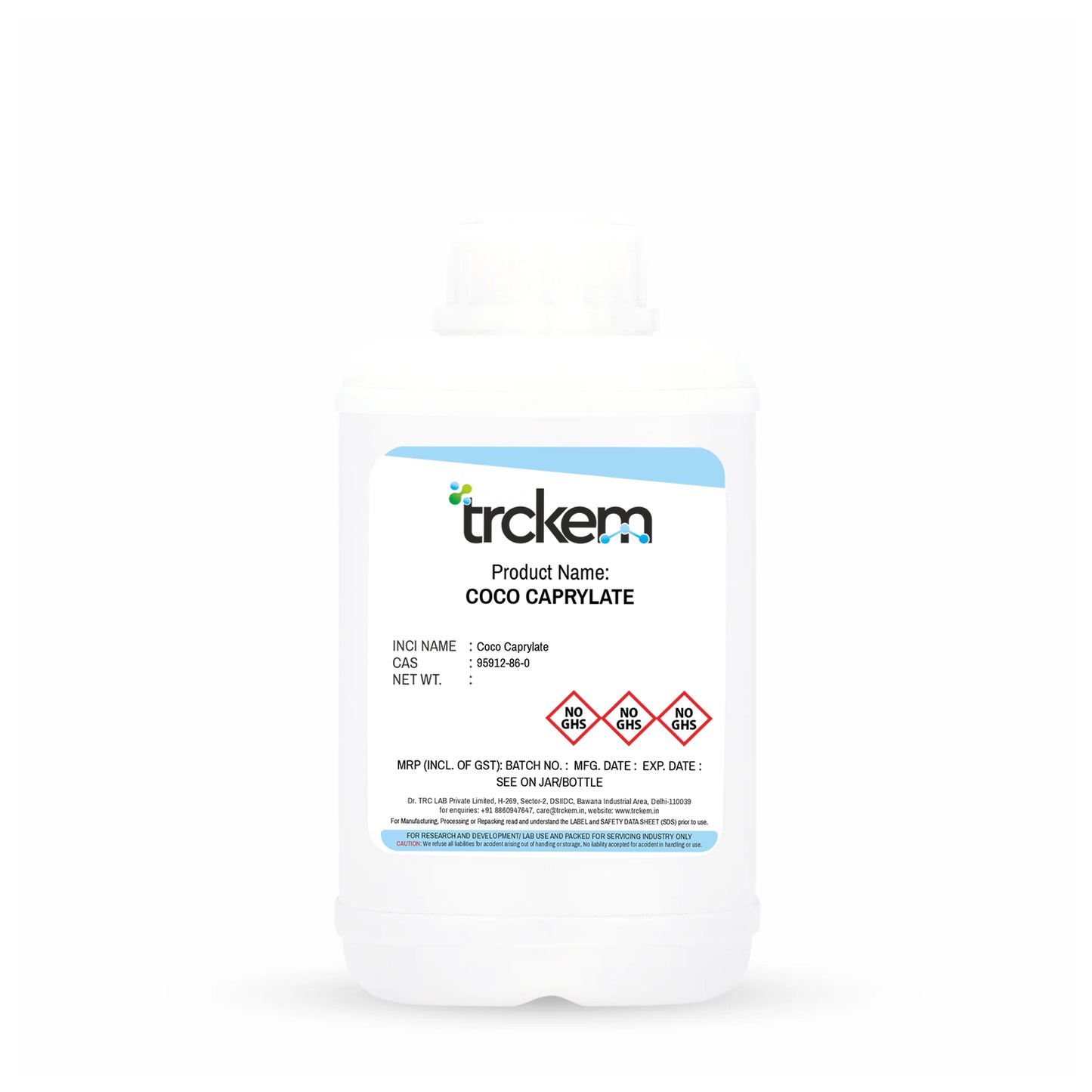

THE STORY OF COCO CAPRYLATE

Coco-Caprylate: The Lightweight Natural Silicone Alternative for Silky Skin Feel
Coco-Caprylate is a naturally derived, ultra-light emollient made from coconut fatty alcohols.
It is widely used as a natural silicone replacement, offering a smooth, dry, silky sensory feel in skincare, haircare, sun-care, and makeup.
Known for fast absorption and a non-greasy touch, it enhances elegance in modern clean-beauty formulations.

Eco-Derived Ester from Coconut Fatty Alcohols & Caprylic Acid
Coco-Caprylate is created by esterifying coconut-based fatty alcohols with caprylic acid.
This produces a biodegradable, light ester with sensory properties similar to cyclomethicone and dimethicone.
Key characteristics:
• Plant-derived
• Fast-absorbing
• Excellent spreading behavior
• Biodegradable & eco-friendly
TRCkem provides high-purity natural Coco-Caprylate for premium cosmetic use.

Smooth. Absorb. Enhance.
Coco-Caprylate delivers exceptional sensory and performance benefits:
✅ Provides a silky, silicone-like skin feel
✅ Offers excellent spreadability in lotions & serums
✅ Leaves non-greasy, fast-absorbing finish
✅ Enhances shine & softness in haircare
✓ Improves pigment dispersion for makeup products
Used in: serums, lightweight creams, sunscreens, makeup primers, conditioners, hair serums & clean beauty emulsions.

Mild, Stable & Easy to Use in Modern Clean-Beauty Formulations
• Typical use level: 2–15%
• Add to oil phase or during cool-down for sensory enhancement
• Compatible with oils, esters, silicones (if used), UV filters & natural butters
• Non-comedogenic & suitable for sensitive skin
• Fully biodegradable & COSMOS-approved
• Store tightly sealed in a cool, dry place
• Ideal for natural, vegan, and silicone-free formulations
Formulator’s Queries, We Answered
1. What is Coco-Caprylate?
Coco-Caprylate is a naturally derived, light emollient made from coconut alcohol and caprylic acid. It is used in personal care formulations to provide a silky, non-greasy skin feel and acts as a natural alternative to silicones in skincare and haircare products.
2. What is the INCI name and CAS number of Coco-Caprylate?
CAS Number: 88807-58-7
INCI Name: Coco-Caprylate
3. What are the main benefits of Coco-Caprylate in cosmetics and personal care?
Provides a lightweight, dry-touch feel on skin and hair
Excellent natural alternative to silicones like dimethicone
Improves spreadability and absorption of formulations
Biodegradable and derived from renewable sources
4. In what types of personal care products is Coco-Caprylate commonly used?
Coco-Caprylate is used in:
Face creams and moisturizers
Serums and body lotions
Hair conditioners and smoothing products
Sunscreens and after-sun care
Foundations and color cosmetics
5. Is Coco-Caprylate considered natural or synthetic?
Coco-Caprylate is considered naturally derived, made from plant-based (coconut) sources. It is biodegradable and aligns with clean beauty and natural formulation standards.
6. Is Coco-Caprylate suitable for oily or acne-prone skin?
Yes, it has a non-comedogenic, lightweight texture that makes it ideal for oily, acne-prone, or sensitive skin. It delivers emollient benefits without clogging pores or leaving a greasy residue.
7. What is the recommended usage level of Coco-Caprylate in formulations?
Typical usage levels range from 1% to 10%, depending on the product type and desired sensory profile.
8. Is Coco-Caprylate environmentally friendly?
Yes, it is biodegradable, made from renewable raw materials, and often used in eco-friendly and vegan formulations. It’s also an excellent alternative to non-biodegradable silicones.




